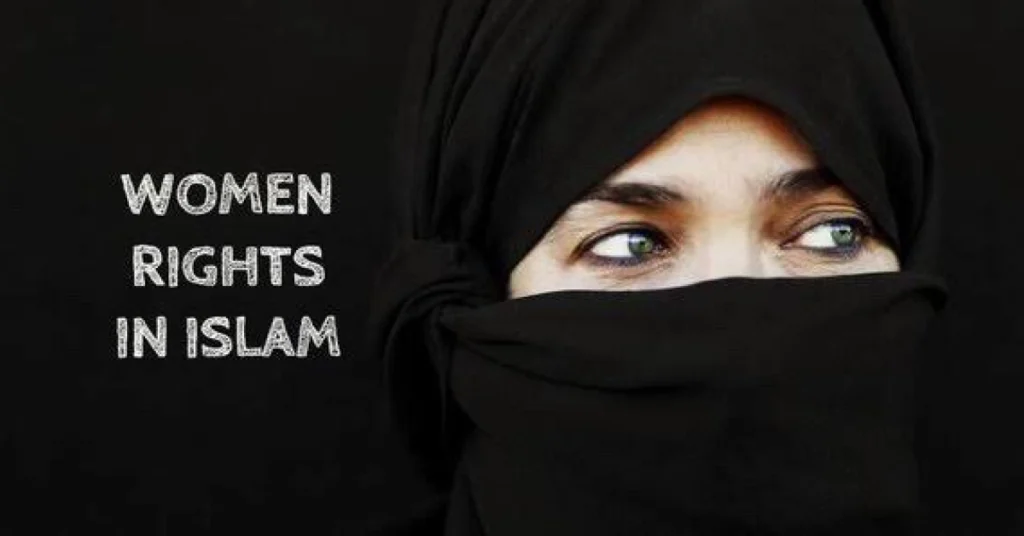Introduction
In today’s world, discussions about women’s rights are of paramount importance. Among the various sources that influence societal norms and values, religious texts play a significant role. The Quran, the holy book of Islam, addresses numerous aspects of human life, including the rights and status of women. This article delves into the Quran’s teachings regarding women’s rights, shedding light on its principles and implications.
Historical Context
Pre-Islamic Arabia:
Before the arrival of Islam, Arabian society was profoundly patriarchal, with women frequently viewed as inferior to men. They have restricted rights and faced many sorts of discrimination and exploitation.
Women before Islam:
In pre-Islamic Arabia, women were considered mere possessions, lacking autonomy and agency. They had no right to inherit property, participate in decision-making, or receive education. Their value was primarily determined by their roles as wives and mothers.
Impact of Islam on Women’s Rights:
The emergence of Islam brought significant changes to the status of women in Arabian society. The Quran challenged existing norms and advocated for the rights and dignity of women. It introduced revolutionary concepts that aimed to uplift women and ensure their equality and well-being.
Equality in the Quran
Equal Spiritual Status:
The Quran emphasizes the equal spiritual status of men and women, stating that both are equal in the sight of God. It rejects the notion of gender-based superiority and emphasizes the importance of piety and righteousness.
Right to Education:
Islam recognizes the right of women to seek knowledge and education. The Quran encourages both men and women to acquire knowledge and develop intellectually, highlighting the importance of education in personal and societal development.
Right to Inheritance:
One of the significant reforms introduced by Islam is the right of women to inherit property. The Quran stipulates clear guidelines regarding inheritance, ensuring that women receive their fair share of inheritance alongside men.
Protection and Respect
Protection of Women:
Islam places a strong emphasis on the protection of women’s rights and well-being. The Quran prohibits any form of harm or oppression against women and emphasizes the importance of treating them with kindness and compassion.
Respect for Women’s Autonomy:
Contrary to common misconceptions, Islam respects the autonomy and agency of women. The Quran recognizes women as independent individuals with the right to make decisions regarding their lives, including marriage and career choices.
Prohibition of Violence against Women:
Islam unequivocally condemns violence against women in all its forms. The Quran prohibits domestic abuse, coercion, and any behavior that violates women’s rights and dignity.
Misconceptions and Interpretations
Misconceptions about Women’s Rights in Islam:
Despite the Quran’s explicit teachings on women’s rights, there are numerous misconceptions and misunderstandings surrounding the topic. These misconceptions often stem from cultural biases and misinterpretations of religious texts.
Interpretations in Different Cultural Contexts:
The interpretation of religious texts varies across different cultural and geographical contexts. While some societies uphold the principles of gender equality and women’s rights as outlined in the Quran, others may adopt patriarchal interpretations that perpetuate gender-based discrimination.
Feminist Perspectives on the Quran:
Feminist scholars have critically analyzed the Quran’s teachings on women’s rights, highlighting its progressive aspects and advocating for gender equality within an Islamic framework. They emphasize the need to reinterpret religious texts in light of contemporary values and realities.
Contemporary Relevance
Women’s Rights Movements in Muslim-Majority Countries:
In recent decades, there has been a surge in women’s rights movements in many Muslim-majority countries. These movements advocate for legal reforms, social change, and greater gender equality, drawing inspiration from Islamic principles of justice and equity.
Challenges and Progress:
While significant progress has been made in advancing women’s rights in some Muslim-majority countries, challenges persist. Issues such as discriminatory laws, cultural norms, and lack of access to resources continue to hinder the full realization of women’s rights.
Role of Education and Advocacy:
Education and advocacy play a crucial role in promoting women’s rights and challenging patriarchal attitudes and practices. Empowering women through education and raising awareness about their rights are essential steps towards achieving gender equality in Muslim communities.
Conclusion
In conclusion, the Quran’s teachings on women’s rights offer a rich foundation for promoting gender equality and social justice. By upholding principles of equity, respect, and dignity, Islam provides a framework for addressing the diverse needs and aspirations of women in today’s world. However, achieving true gender equality requires ongoing efforts to challenge discriminatory practices, promote education, and empower women to fully participate in all aspects of society.
FAQs
Q1. Does Islam support gender equality?
Islam advocates for the equal spiritual status and inherent dignity of men and women, emphasizing their equal rights and responsibilities.
Q2. What rights do women have in Islam regarding marriage?
Women in Islam have the right to consent to marriage, choose their spouses, and negotiate the terms of marriage contracts.
Q3. Are women allowed to work in Islam?
Islam encourages both men and women to seek lawful employment and contribute to society, provided that it does not conflict with their religious obligations.
Q4. How does Islam view domestic violence?
Islam categorically condemns domestic violence and considers it a violation of human rights and Islamic teachings.
Q5. Can women lead prayers in Islam?
While women are not traditionally appointed as imams or prayer leaders in mosques in many Muslim-majority countries, there is diversity of opinion among Islamic scholars regarding women’s participation in leading prayers.
If you want more Quranic Blogs Click Here! And Download AnalyzeQuran App Click Here!

